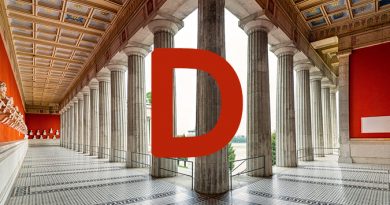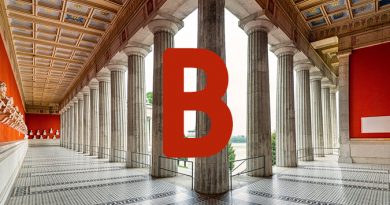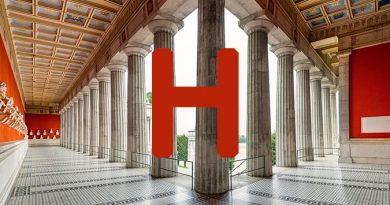A
Henry Braithwaite Abbott CPR executive b. June 14, 1829, Abbotsford, Que.; d. Sept. 13, 1915, Vancouver. Studied civil engineering at McGill. Throughout his career, he held important positions in eastern Canadian railway systems, before appointment as CPR superintendent. Present at laying of the last spike Nov. 8, 1885 at Craigellachie; rode the first train from Montreal to Port Moody with Lord Strathcona and CPR president Sir William Van Horne. In March 1886, let the contract for the clearing of the townsite of Vancouver (pop. 500). A mountain in the Selkirks and Vancouver’s Abbott St. are named for him.
Ivan (Ivor Frederick) Ackery Movie promoter b. Oct. 30, 1899, Bristol, Eng.; d. Oct. 29, 1989, Vancouver, on the eve of his 90th birthday. Moved to Vancouver in 1914. As manager of the Orpheum Theatre (1935-69), he was known as Mr. Orpheum, Atomic Ack and Little Orpheum Ackery. Promotional stunts earned him two Motion Picture Quigley Awards, the theatre promoters’ equivalent of an Oscar. Paraded a cow down Granville with a sign: “There’s a great show at the Orpheum and that’s no bull.” The lane behind the Orpheum is called Ackery Alley. Biblio: Fifty Years on Theatre Row.
Harry Adaskin Musician b. Oct. 6, 1901, Riga, Latvia; d. April 7, 1994, Vancouver. A child prodigy, he played the violin from age 7. Founding member of the Hart House Quartet (1924). In 1946, moved to Vancouver. Established musical faculty at UBC, retiring in 1973. Known for his efforts to popularize classical music. Received Order of Canada (1975); LL.D (UBC, 1980). Biblio: A Fiddler’s World and A Fiddler’s Choice.
Hy Aisenstat Restaurateur b. April 28, 1926, Calgary; d. Aug. 11, 1988, Vancouver. Son of a Russian emigre wholesale grocer in Calgary. Hy worked in sales, then owned a small oil company. In 1955, with wife Barbara (b. Mar. 20, 1934, Kirkland Lake, Ont.) opened Hy’s Steak House in Calgary with a $3,000 loan. Moved to Vancouver (1960) and opened Hy’s at The Sands, The Mansion (1979) and Hy’s Encore. By 1968, Hy’s of Canada united 12 companies, with restaurants across Canada, and in Chicago, Honolulu, Palm Springs and Beverly Hills. Called his restaurants “saloons” and smoked 10 Havana cigars daily. Host to Bob Hope, Marlene Dietrich, Louis Armstrong and other stars.
Henry Osborne Alexander First white male born on Burrard Inlet, judge b. Dec. 13, 1873, Hastings Mill; d. April 18, 1920, Vancouver. His father was Richard Alexander. Educated at St. Paul’s College, Esquimalt. Called to the bar in 1896 and practised in Vancouver. On . 10, 1908, when two South Vancouver neighbors came to court over ownership of a rooster, Magistrate Alexander ordered the bird turned loose on the street to decide for itself where it belonged. An early, active member of the Royal Yacht Club.
Richard Henry Alexander Hastings Mill storekeeper b. March 26, 1844, Edinburgh, Scotland; d. Jan. 29, 1915, Seattle. In 1855, emigrated to Toronto with his parents. In 1862, joined an overland party from Minneapolis to the Fraser gold fields. Kept a diary of his journey, now in the Vancouver City Archives. Reaching New Westminster, he odd-jobbed until 1870 when he took over the Hastings Mill Store. Quickly rose to mill accountant, later manager on the death of Captain James Raymur . Served as justice of the peace, member of the Granville school board, and on other public bodies.
Tom Alsbury Mayor of Vancouver, 1959-62 See Mayors of Vancouver.
R.A. Anderson Mayor of Vancouver, 1894 See Mayors of Vancouver.
Margaret Grant Andrew Arts activist b. Mar. 19, 1912, Kingston, Ont.; d. July 30, 1982, Vancouver. Daughter of William L. Grant, history professor and principal of Upper Canada College. Graduated from McGill (BA, economics and political science, 1933). Worked in a bank, then joined CBC when it started in 1936. Vancouver School Board trustee (1975-76); chair (1977-79). A popular figure in the artistic and academic community, she was active in B.C. Arts in Education Council, Vanier Institute of the Family, Vancouver Art Gallery, Family Service Association and University Women’s Club. Husband Geoffrey was vice president of UBC and director of Association of Universities and Colleges in Canada (d. 1987).
Henry Forbes Angus UBC dean b. April 19, 1891, Victoria; d. Sept. 17, 1991, Vancouver. BA (McGill U., 1911), MA (Oxford, 1919). In 1919, joined UBC as assistant professor of economics. Head of economics, political science and sociology (1930-56). First dean of graduate studies (1949-56); Dean Emeritus (1956-). One of the few public voices to oppose internment of Japanese-Canadians. LL.D (UBC, 1956). His wife, Anne Margaret (b. Anatolia, Turkey) was a diplomat’s daughter, UBC graduate (1923), president of the University Women’s Club and a child welfare activist. She wrote the first UBC student play (The High Priest, 1922) performed by the University Players’ Club and received an LL.D (UBC, 1933).
Francis (François Noel) Annance Abenaki explorer b. 1789, St. Francis, Richelieu Valley (Quebec); d. c. 1851, St. Francis. An Abenaki interpreter’s son, he went to Moor’s Indian Charity School in New Hampshire. Joined North West Co. (1810); supported the British in the War of 1812. Chosen for difficult expedition from Fort George to the Fraser (1824), establishing Fort Langley (1827). After conflicts with Hudson’s Bay Co. chief factor John McLoughlin, over a lack of promotion, said to be due to his native heritage, Francis resigned but was forced to complete his contract. Returned to St. Francis (1845) as a Protestant school teacher. Annacis Island originally Annace’s Island is named for him.
James William Armstrong Flour and sawmill owner, politician b. Oct. 31, 1826, Peterborough, Ont.; d. Dec. 18, 1915, New Westminster. Came to B.C. in 1858. First white settler in New Westminster; first merchant (general store, 1859-73). Built first house on the Fraser and first flour mill (1867-71). Elected one of first town councillors (1860-73). From 1873-76, he was B.C. minister of finance and agriculture under Amor DeCosmos. In 1881, named provincial secretary. In 1883, appointed sheriff of Westminster County.
William Henry Armstrong Bridge builder, first B.C. car owner b. Sept. 18, 1857, Stratford, Ont.; d. March 31, 1922, Vancouver. At 16, worked as a railway switchman, later in bridge construction. From 1877-83, he was a master mechanic in Winnipeg. Moved to Victoria 1883; worked for CPR until 1887. After 1902 his firm, Armstrong, Morrison & Balfour, built the Fraser River bridge at New Westminster, Great Northern Railway bridge across False Creek, and Granville and Main street bridges. Began seven bridges in August 1912, all completed in May 1913. Paved many of Vancouver’s streets. “He astonished the citizens by introducing a gasoline wagon,” the first car in B.C., bought in Boston in 1899.
Balwant Singh Atwal Sikh priest b. India; d. March 1917, Lahore, India. Well-respected in the Sikh community, he was the first priest of the 2nd Ave. gurdwara (temple). His son, Hardial Singh Atwal, born at the temple (Aug. 28, 1912) was the first Canadian-born Sikh and now lives in Duncan. After his wife Kartar Kaur became ill the family moved back to India. En route, Balwant was jailed in Singapore as a revolutionary. A letter from the temple confirming his position was never received by the authorities. He was hanged in Lahore on charges of sedition and political agitation against the British government.
Jack (John Henry Patrick) Avison Orchestra conductor b. April 25, 1914, Vancouver; d. Nov. 30, 1983, Vancouver. Played his first piano concert at age 6 at Grandview Elem.; at 11, broke in as pianist-announcer at local radio station. Awarded BA (UBC, 1935), B.Mus (U. of Washington, 1936). Studied with Paul Hindemith at Juilliard. Pianist with Vancouver Symphony Orchestra. “Big John” was founder and conductor of 35-piece CBC Vancouver Chamber Orchestra. In 1971, conducted the Canadian Arctic’s first orchestral concert. Produced more than 40 recordings. Noted for his support of Canadian composers. He “belonged to the last generation of the pioneers of music in Canada.” Twice received Order of Canada.




